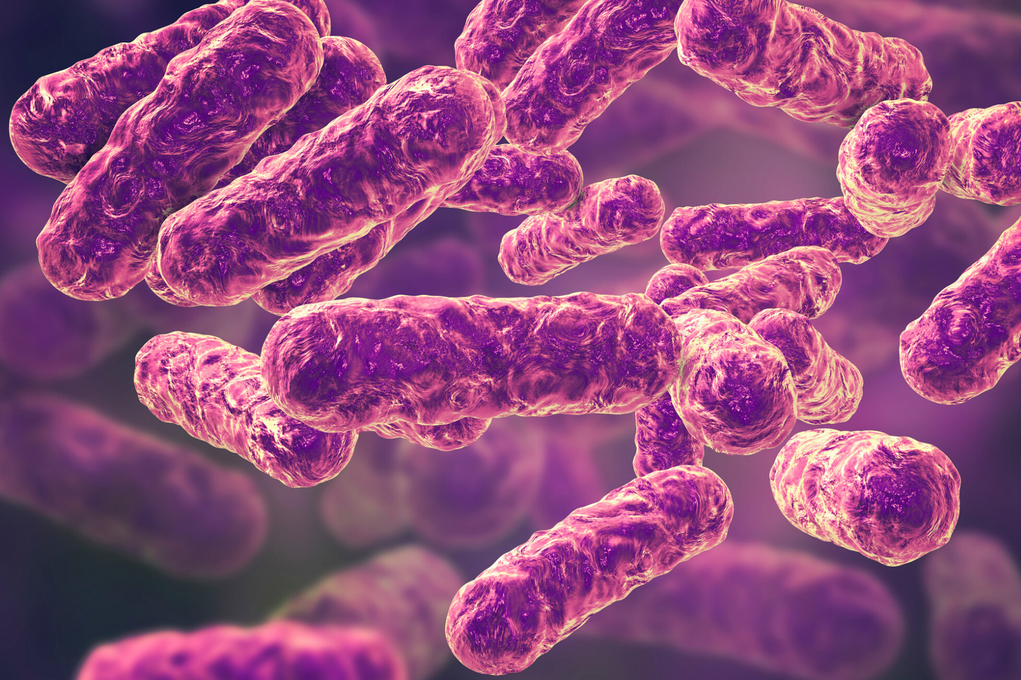Bacillus subtilus & Parkinson's Disease: Understanding the latest research
12th February 2020 / News
Bacillus subtilus & Parkinson's Disease: Understanding the latest research
Emily Shannon

Our gut microbiome is our internal ecosystem which consists of trillions of microorganisms, including thousands of different types of bacteria. The diversity of our microbiome is as unique as our fingerprint, and it’s known that our gut microbes offer many benefits to our health! Certain bacterial strains are more researched than others, and more research is constantly emerging in this exciting field, here at Link Nutrition we’re mad about gut health!
Probiotics, like our Synbiotic 7, are often used to improve the diversity of the bacteria within the gut, with the most popular being Lactobacillus and Bifidobacterium strains. However, a specific strain called Bacillus subtilis is one example of a bacterial strain which has been shown to have beneficial probiotic characteristics, and is the most abundant strain in our Synbiotic 7, with 10 billion colony forming units or CFU. Its beneficial effects include immunomodulatory properties and an ability to help improve digestive health by strengthening the intestinal barrier and supporting against the inflammatory response by supporting the GI tract. It’s really important to maintain good gut health to maintain a high bacterial diversity within our gut, because it's known that our gut microbiome helps to support our health in a number of ways which include:
- Ensuring efficient absorption of nutrients
- Supports a well functioning immune system
- Promotes good digestion
- A nourished microbiome promotes improved mood
- Supports brain and heart health
If you're interested in probiotics, you can find out more here.
As you can see, our gut health is pretty important, research is constantly developing, but the idea that our gut health supports a whole host of different parts of our body is extremely exciting and here at Link Nutrition we always like to keep up to date with the latest published studies. Previous research has delved into the link between the gut microbiome and brain health; suggesting that certain bacterial strains and nourishing a diverse bacterial community, could help support and preserve brain function. However, the latest evidence is suggesting that a specific bacterial strain called Bacillus subtilis has a close link to a protein that is associated with Parkinson’s disease. So what did the research find, and what's the latest?
The Latest Research
The latest evidence now suggests that this particular stain could help slow the buildup of a protein that is strongly associated with Parkinson's disease. Early trials in c.elegans have shown Bacillus subtilis both protecting against and potentially clearing a build up of the protein alpha-synuclein which affects patients with Parkinson's disease. The protective effect of Bacillus subtilis is under further investigation in both laboratory studies and clinical trials, but initial research into the strain could be extremely promising.
How could the strain be working?
The trial showed that this strain of Bacillus subtilis could be working to both reduce and slow the buildup of the protein that this is associated with Parkinson’s disease. The protein called alpha-synuclein protein, causes misfolds and builds up in the brains of patients with Parkinson’s disease. These clumps of alpha-synuclein protein are toxic and cause damage to nerve cells, particularly nerve cells which produce dopamine. Dopamine is both a hormone and neurotransmitter. As a neurotransmitter, dopamine is essential for relaying messages that control body movement. The damage to these cells means the brain is no longer able to relay these messages leading to the main symptoms of Parkinson’s disease which include involuntary shaking, muscle stiffness and slowness and difficulty moving.
The protective effect of Bacillus subtilis is under further investigation in both laboratory studies and clinical trials on humans, but initial research into Bacillus subtilis is extremely promising. Further clinical trials are required in order to further test the theory. If you want to find out more about our Synbiotic 7 or read the study for yourself you can find it here.
From The Blog
-

22nd December 2022 / Health / News
New Year Resolutions You Can Actually Keep
New Year resolutions to shed unhealthy habits and create healthy new ones are always popular. Often expectations are high, but January is when our systems can have the least in the tank leading to...
Read article -

30th November 2022 / Health / News
Taking Vitamin D This Winter
As the days get shorter and we spend more time inside, we should start to think about our vitamin D levels. Vitamin D deficiency in winter months is super common, but the symptoms often go unnot...
Read article -

28th November 2022 / Health / News
8 Big Health Discoveries of 2022
Health Review 2022 One of the things we love about nutrition is that it is an evolving area of science with great discoveries happening all the time. We can apply these to our everyday lives in th...
Read article



